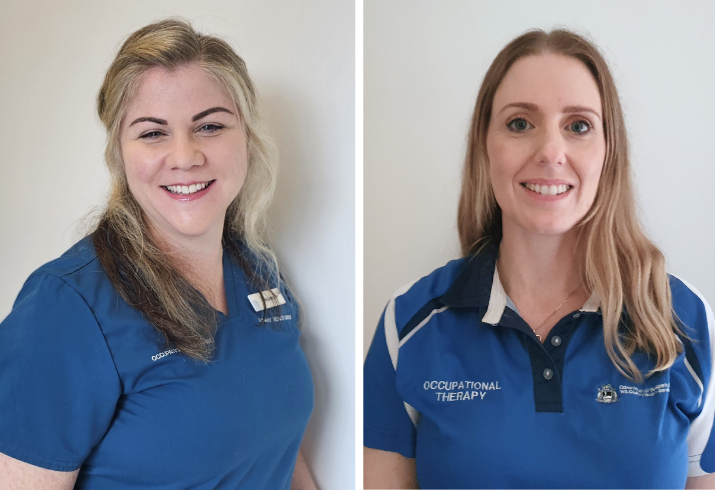New training program designed to give rural therapists the upper hand

An innovative WA Country Health Service (WACHS) program is supporting occupational therapists to receive hand therapy training online.
Following a successful submission to WACHS’ innovation program “Pitch Your Pilot”, the virtual hand therapy training is being rolled out online – making hand therapy upskilling and training opportunities easy to access from anywhere in country WA.
Albany Health Campus Occupational Therapist Lauren Irvine initially developed the six-month hand therapy training program for entry level occupational therapists moving through their rotation at the hospital.
“The outpatient hand therapy service at Albany Health Campus has experienced significant growth in recent years,” Lauren said.
“With an increasing number of specialists working out of the hospital, there has been a high demand for post-operative upper limb rehabilitation – both elective and emergency – requiring the outpatient service to develop different ways of working.”
The team has been involved in providing hand therapy education to medical students through the hospital and the Rural Clinical School in Albany, and to doctors upskilling and improving their knowledge of hand injury management.
“We’ve also provided ad hoc support to smaller rural sites who have generalist occupational therapists requesting advice for their patients, and the feedback from staff who have completed the program has been very positive.”
Lauren said she was encouraged by Albany Health Campus senior staff to enter the hand therapy training program into the “Pitch Your Pilot” competition, with a view to expanding access to the training.
“We pitched the program as a way to offer basic hand therapy training to rural generalist occupational therapists and physiotherapists working in remote areas,” Lauren said.
Lauren acknowledged the support throughout the submission and delivery phase by OT Professional Lead, Anne Herbert.
The program would go on to be selected as one of eight projects to progress from 50 submissions in 2024.
The pilot virtual training program offers a mixture of theory, case study discussion and practical splinting opportunities to a small group of participants.
Training is carried out fortnightly with the current program due to be completed in April 2025.
